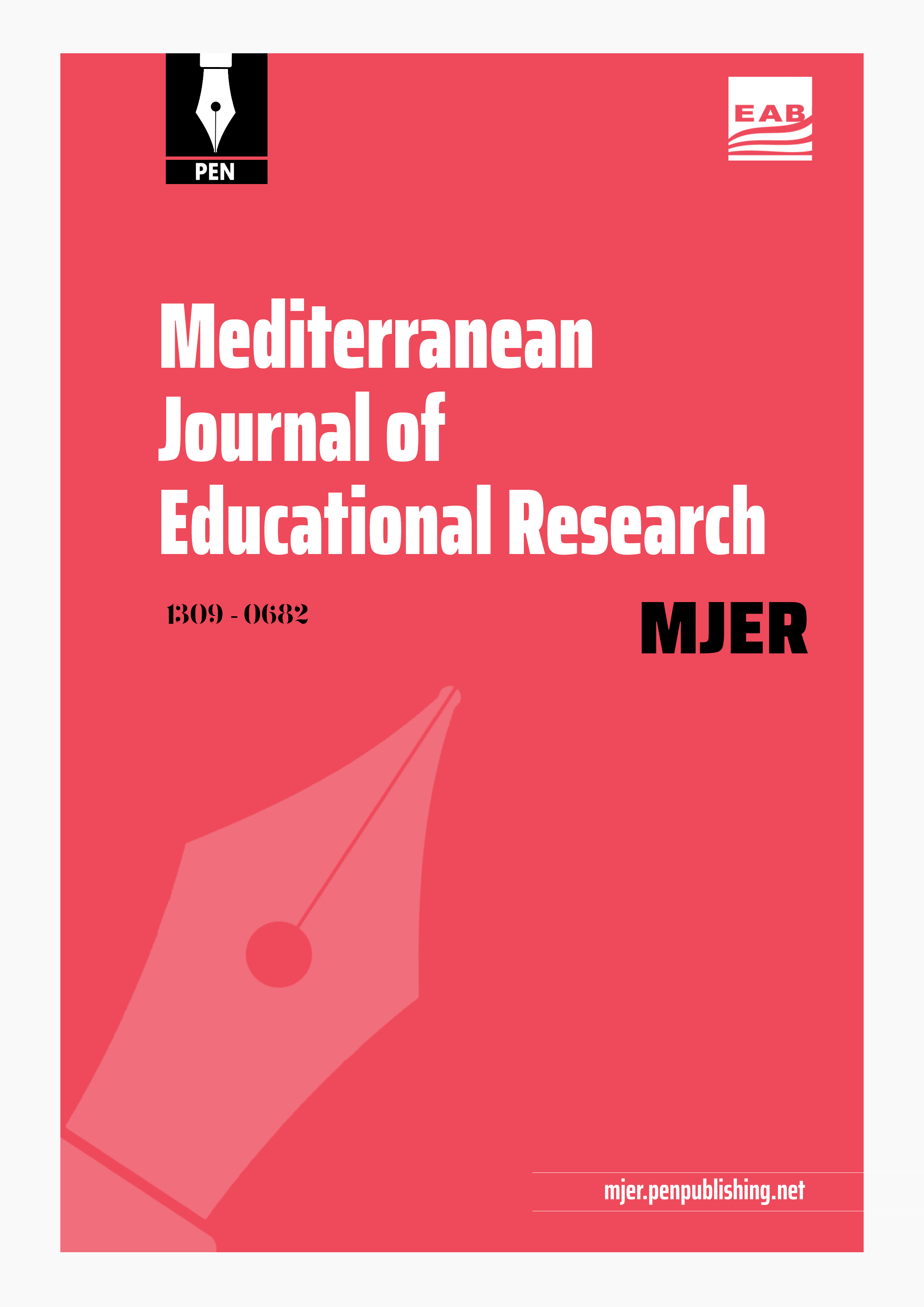Orjinal Araştırma Makalesi | Akdeniz Eğitim Araştırmaları Dergisi 2021, Cil. 15(35) 248-258
World of Basic Education Learner: Ground for Moral Autonomy Cultivation in Contemporary Nigeria
Paul Jackson Ireyefoju & Charity Dafiaghor
ss. 248 - 258 | DOI: https://doi.org/10.29329/mjer.2021.340.11 | Makale No: MANU-2012-20-0004
Yayın tarihi: Mart 25, 2021 | Okunma Sayısı: 65 | İndirilme Sayısı: 408
Özet
An autonomous moral being is also a rational, historical, cultural and social being. The social nature of man makes it possible for man to interact with other fellow human beings. The success of human interaction is based on moral codes which tend to regulate human actions and reactions. In traditional African experience, ethical values include hard work, self-reliance, dignity in labour, contentment, patience, tolerance, respect for and sacredness of human life, respect for elders and being a brother’s keeper. These priceless ethical behaviours guide man’s perception of Being and other beings. Unfortunately, these values seem to have abdicated the throne of grace as witnessed in the increasing wave of crime, corruption, abuse of office, and the attendance loss of life and dignity of human person. It is against this situation these authors attempt to analyse the world of the basic education learner as ground for cultivating moral autonomy in contemporary Nigeria. In doing this, these authors employed the philosophical analysis approach in analysing the Nigerian moral environment, world of basic education learner, Kohlberg’s theory of cognitive moral development, moral autonomy, challenges of developing moral autonomy in the learner, developing moral autonomy through the world of the basic education learner. The importance of this paper is to provide school managers and teachers with better understanding of how the learner ethically conduct themselves and build a conducive environment where the learner can cultivate healthy moral behaviour.
Anahtar Kelimeler: Cultivation, Contemporary Nigeria, Moral Autonomy, Moral Development, World of Basic Education Learner
| Bu makaleye nasıl atıf yapılır? |
|
APA 6th edition
Ireyefoju, P.J. & Dafiaghor, C. (2021). World of Basic Education Learner: Ground for Moral Autonomy Cultivation in Contemporary Nigeria
. Akdeniz Eğitim Araştırmaları Dergisi, 15(35), 248-258. doi: 10.29329/mjer.2021.340.11
Harvard
Ireyefoju, P. and Dafiaghor, C. (2021). World of Basic Education Learner: Ground for Moral Autonomy Cultivation in Contemporary Nigeria
. Akdeniz Eğitim Araştırmaları Dergisi, 15(35), pp. 248-258.
Chicago 16th edition
Ireyefoju, Paul Jackson and Charity Dafiaghor (2021). "World of Basic Education Learner: Ground for Moral Autonomy Cultivation in Contemporary Nigeria
". Akdeniz Eğitim Araştırmaları Dergisi 15 (35):248-258. doi:10.29329/mjer.2021.340.11.
|
| Kaynakça |
- Blake, M. (2001). Distributive justice, state coercion and autonomy. In C.R. Beitz (Ed). Philosophy and public affairs (pp. 267-270). Princeton: Princeton University Press. [Google Scholar]
- Dearden, R. F. (1975). Autonomy and education. (In R. F. Dearden, P. H. Hirst & R. S. Peters (Eds.), Education and development of reason (pp. 85 – 97). London: Routledge and Kegan Paul. [Google Scholar]
- Federal Republic of Nigeria (1998). National policy on education. NERDC. [Google Scholar]
- https://www.bartleby.com/writing/FKJKM85ZTC [Google Scholar]
- Iheoma, E.O. (1995). Moral education for colleges and universities. Enugu: Fourth Dimension Publishing Company Limited. [Google Scholar]
- Ireyefoju, P.J. (2014). Existential phenomenology of autonomy in human relations: The dilemma of the Nigerian adolescent learner. Dissertation, University of Benin. [Google Scholar]
- Ireyefoju, P.J. and Mogbeyiteren, Mon. (2009). Developing the critical mind in the Nigerian learner. Nigerian Journal for Adult and Lifelong Learning, 1(2), 56-60. [Google Scholar]
- Knight, G.R. (1997). Philosophy and education: An introduction in Christian perspective. (2nd ed.). Berren Springs: Andrews University Press. [Google Scholar]
- Kneller, G. (1971). Introduction to the philosophy of education. (2nd Ed.). London: John Wiley and Sons, Inc. [Google Scholar]
- Kohlberg, L. (1969). Stages and sequence: The cognitive-developmental approach to socialization. (In D.A. Goshin (Ed.), Handbook of socialization theory and research (pp. 347-480). New York: Rand McNally. [Google Scholar]
- Momodu, B.E., Maha, & Ireyefoju, P.J (2020). Existential realism an edifice for vocational technical education in contemporary Nigeria. Journal of Contemporary Education Research (JCER), 20(8), 333 – 343. [Google Scholar]
- Okoroh, O. (2000). How critical can the African learner be? (In A. Adewole and O. Ayodele-Bamisaiye (Eds.), Philosophizing about African education (pp. 36 – 51). PEAN in association with Macmillan Nigeria Publishers, Ibadan. [Google Scholar]
- Omoregbe, J.I. (2008). Ethics: A systematic and historical study. (2nd Ed.). Lagos: Joja Educational Research and Publishers Limited. [Google Scholar]
- Omoregbe, J. I. (2001). Philosophy of mind: An introduction to philosophical psychology. Lagos: Joja Educational Research and Publishers Limited. [Google Scholar]
- Uyanga, U.D. (2010). Developing moral autonomy in individuals as a vital step to developing the nation: Implications for education. Dissertation, of the University of Port Harcourt. [Google Scholar]
- Uyanga, U.D. & Aminigo, I.M. (2010). The morally autonomous individual and national development imperatives in the Nigerian nation. Trends in Educational Studies Journal of the Institute of Education, 5(1&2), 1-8. [Google Scholar]
|


